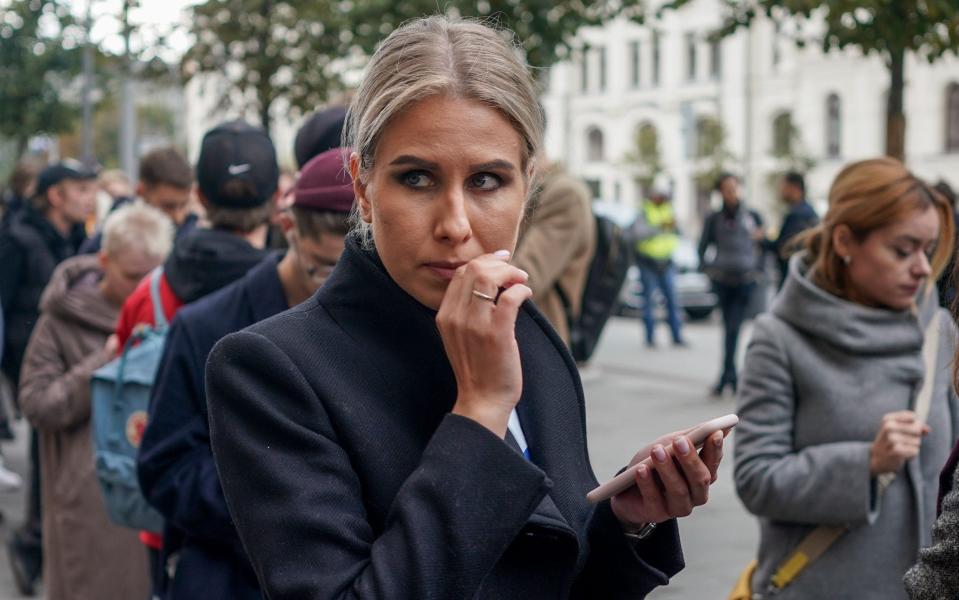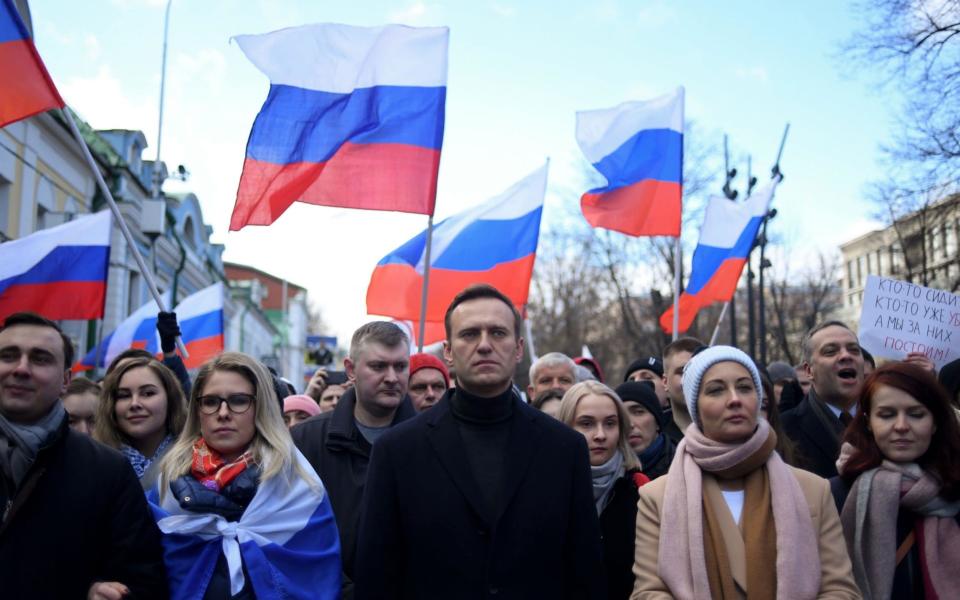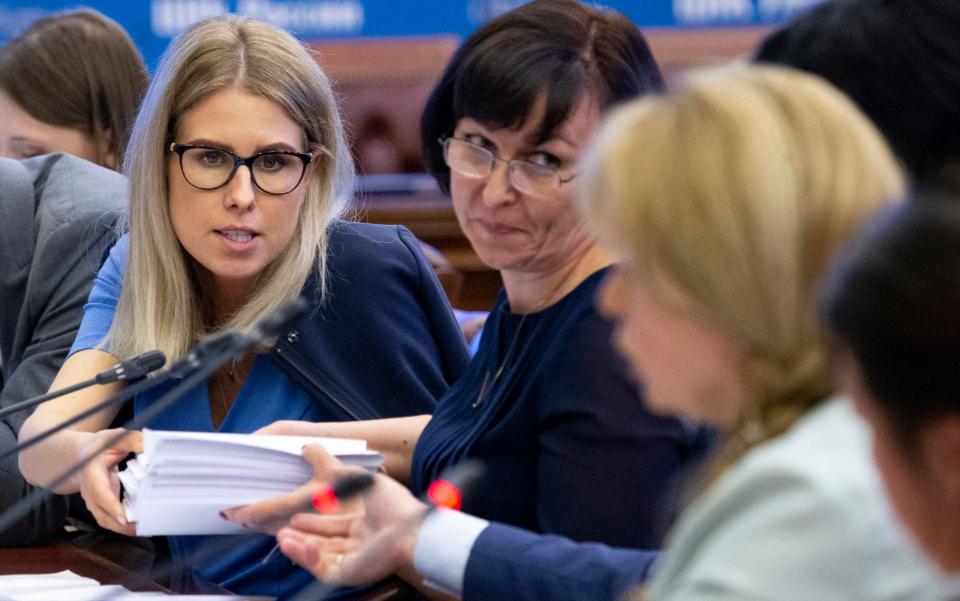The woman leading the fight against Putin '24/7' after poisoning of Navalny

Lyubov Sobol was already among the most visible dissidents in Vladimir Putin’s Russia. At 32, she has fronted a protest movement, calling thousands to the streets when she and other opposition candidates were barred from standing in Moscow city elections last year.
She staged a hunger strike and a sit-in at the offices of the Moscow election commission, eventually being lifted out of the building on a sofa after she refused to stand for police officers. A laughing Ms Sobol broadcast the incident live from her phone to her vast social media following.
She has been sued by one of the most powerful businessmen in the country, and her husband has survived a poisoning. In 2016 an unknown assailant jabbed a syringe into his leg and injected a psychotropic substance that left him convulsing and unconscious, an attack Ms Sobol believes was linked to her activism.
Now, with opposition leader Alexei Navalny in a coma in a German hospital after another suspected poisoning, the telegenic lawyer finds herself at the helm of his anti-Kremlin organisation.
Doctors at Berlin’s Charite Hospital, where Mr Navalny was transferred from a Siberian clinic, have said he will probably survive the ordeal but may sustain long-term damage.

Neither they nor his supporters know when, or even if, he will return to his previous role.
Tests at the hospital showed Mr Navalny was poisoned with a “cholinesterase inhibitor”, a group of chemical compounds that includes Novichok, the nerve agent that was used against former Russian intelligence agent Sergei Skripal in Salisbury.
Mr Navalny’s team have laid the blame for the attack squarely on Russian authorities, but the Kremlin rejected the claims as “empty noise” and accused German doctors of “rushing to conclusions”.
Ms Sobol is part of a trio that have vowed to keep up the pressure of authorities in Mr Navalny’s absence. While she runs his YouTube channels - which have a combined six million subscribers and produce regular reports of wrongdoing among the Russian elite - lawyer Ivan Zhdanov heads Mr Navalny’s anti-corruption foundation and top aide Leonid Volkov oversees political campaigning.
In an interview with the Telegraph, Ms Sobol said the group had no intention of scaling back their broadcasts or corruption investigations.
They also plan to campaign against the ruling United Russia party in regional elections next month. Mr Navalny’s group no longer fields candidates itself but encourages supporters to vote for whoever has the best chance of beating United Russia, whether they be from communist or nationalist parties.
“I’m working 24 hours a day, seven days a week,” said Ms Sobol, who has worked with Mr Navalny for a decade.
“Any injustice gives me more strength and motivates me to work harder.”

Before he fell suddenly ill on a flight to Moscow from Siberia ten days ago, Mr Navalny spent months at a time under house arrest or in jail, and relied on a team of legal staff, researchers and other dissidents to keep up pressure on the Kremlin.
“There are dozens of people in our organisation all across the country,” Ms Sobol said, pointing to offices in 40 regions of Russia. “These are people who are professional and they are idealistic - they don’t need a boss to make sure they’re in the office from nine to five.”
And she argued the poisoning had also made an impression on the general public. “People who were indifferent to the authorities and the opposition have come round to our side because they’ve seen the dirty methods the Kremlin uses.”

The dangers of working against Mr Putin, however, are well documented: over his 20-year rule, dissidents have been attacked, poisoned, tried, exiled and, in the case of former opposition leader Boris Nemtsov, assassinated.
Mr Navalny himself is partially blind in one eye after an assailant threw green dye in his face on a Moscow street in 2017. Last year he was hospitalised from prison, where he was serving a short term for organising unauthorised protests, with what officials said was an “acute allergic reaction” but he believed was a poisoning.
Ms Sobol said she was “saddened but not surprised” by the latest alleged attack.
“But I can’t resign myself to the idea that this is normal life. If it can happen to Alexei Navalny, someone who’s known all over the world, it means not a single person can feel safe.
“We all understand what we have to do to continue our fight against the Putin regime.”

 Yahoo News
Yahoo News 